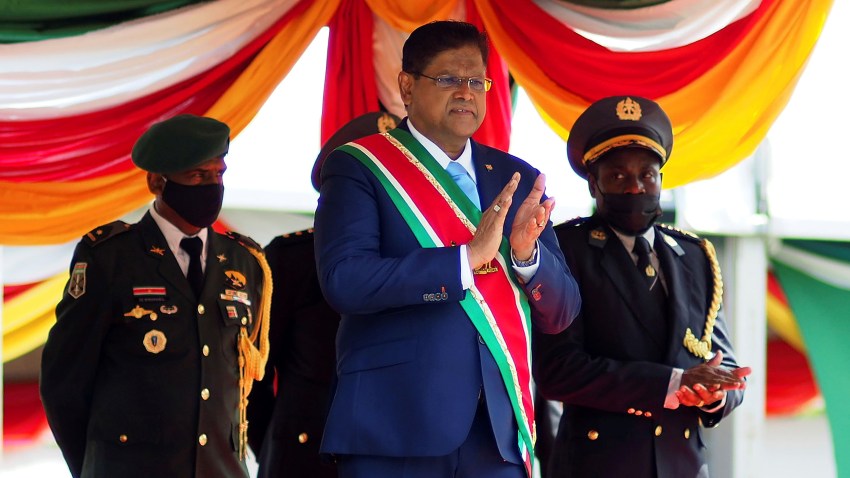On Feb. 17, 2023, with expectations of a pending oil boom dashed and amid growing economic anxiety, hundreds of protesters in Suriname broke into the National Assembly building in the country’s capital, Paramaribo. The violence followed President Chan Santokhi’s decision earlier this year to comply with the conditions of the government’s International Monetary Fund, or IMF, loan agreement, including a phasing out of state subsidies for fuel and electricity and the introduction of a new tax on imported goods.
Suriname negotiated the $690 million Extended Fund Facility program with the IMF in 2021, after its economy shrank by 16 percent in 2020 as a result of the coronavirus pandemic. That followed growth of only 1.1 percent the previous year. In addition, the country’s growing debt burden combined with the government’s dwindling coffers, which made that debt increasingly difficult to service, triggered a restructuring process with Suriname’s creditors in 2020.
Disbursement of the IMF funds, designed to be paid out over several increments, was conditional on the government agreeing to cut budgetary spending by 10 percent of GDP from 2022 to 2024. After receiving an initial disbursement of $55.1 million in December 2021, however, Suriname did not fully implement the required cuts to public expenditure, leading the IMF to halt further disbursements.

